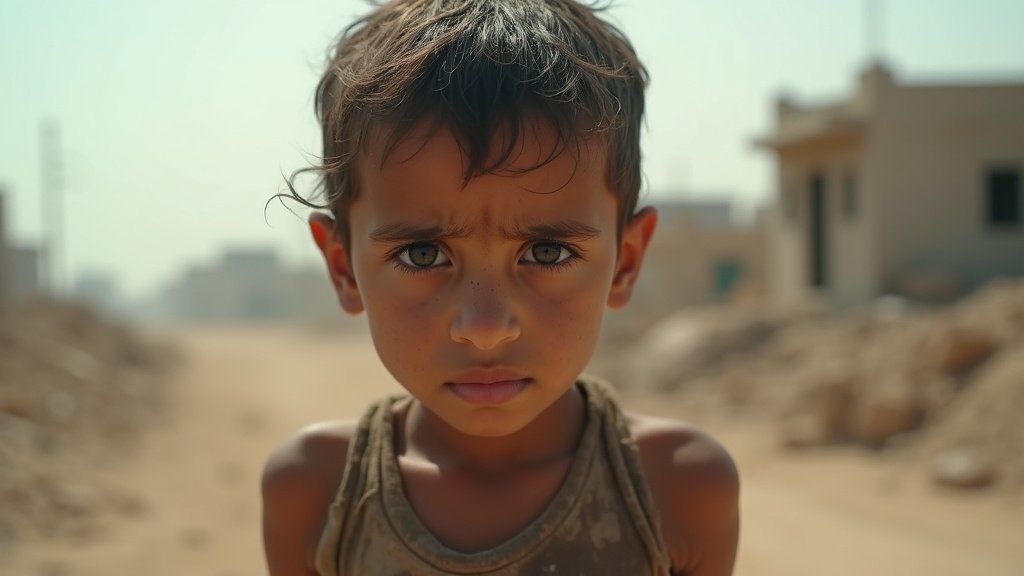A United Nations-backed consortium of experts has officially confirmed that famine is now occurring in northern Gaza, specifically in Gaza Governorate. The Integrated Food Security Phase Classification (IPC) report, published Friday, paints a dire picture of widespread starvation, destitution, and death, warning that over half a million people are trapped in catastrophic conditions. This marks the first time a famine has been formally declared in the Middle East, a profound development sending shockwaves across the world. The report explicitly labels this crisis as “entirely man-made” and reversible, intensifying global calls for urgent action.
The Grim Reality of Starvation
The humanitarian situation in northern Gaza has deteriorated with alarming speed. The IPC report highlights that more than 500,000 people are currently facing IPC Phase 5, the most severe level of food insecurity. Projections indicate this dire situation will likely extend to Deir al-Balah and Khan Younis governorates by the end of September, affecting at least 640,000 individuals, or nearly a third of Gaza’s total population. While conditions in North Gaza Governorate are believed to be equally, if not more, severe, limited data has prevented a formal classification there.
The human cost is devastating. The Ministry of Health in Gaza has reported 271 famine-related deaths, including 112 children, as of Thursday. Acute malnutrition among children is accelerating at a catastrophic pace; an estimated 132,000 children under five are expected to suffer from acute malnutrition through June 2026, with over 41,000 severe cases at heightened risk of death. This estimate has tragically doubled since an IPC report in May. In July alone, over 12,000 children were identified as acutely malnourished, a six-fold increase since the start of the year. Additionally, nearly 55,500 malnourished pregnant and breastfeeding women are in urgent need of nutritional support.
A Man-Made Disaster: Unpacking the Causes
UN Secretary-General António Guterres described the unfolding tragedy as a “man-made disaster, a moral indictment – and a failure of humanity itself.” Humanitarian organizations, including Oxfam, Save the Children, and the International Rescue Committee (IRC), have unequivocally blamed Israeli actions, citing a near-total blockade on food and vital aid, systematic obstruction, and the destruction of critical food and water infrastructure. They accuse Israel of using starvation as a “weapon of war.”
The conflict has led to the widespread destruction of agricultural land, with nearly 98% of cropland damaged or inaccessible. Essential services, including health, sanitation, and market systems, have collapsed, further exacerbating the crisis. More than 1.9 million Palestinians have been displaced, often multiple times, severely disrupting access to any available food resources.
Obstacles and Allegations in Aid Delivery
Despite thousands of tons of food aid reportedly amassed near border crossings, it remains largely inaccessible to those in need. Aid agencies report severe restrictions on entry, ongoing fighting, and a chaotic security environment that hinders distribution, particularly in northern Gaza. Several international NGOs state that Israel has rejected numerous requests to bring in life-saving supplies, with some accusing Israel of dismantling civilian aid systems and replacing them with a “military model” that serves its own objectives.
Conversely, Israel has vehemently rejected claims of famine, asserting that sufficient aid has entered Gaza and that the IPC report relies on “Hamas lies.” Israeli officials contend that the primary challenge lies in distribution within Gaza, not access, stating that hundreds of aid trucks remain uncollected on the Gazan side by international agencies.
International Outcry and Calls to Action
Global leaders and humanitarian organizations have responded with outrage and renewed calls for action. UN relief chief Tom Fletcher stated, “This is irrefutable testimony… It is a famine, the Gaza famine.” He, along with other UN agencies such as FAO, UNICEF, WFP, and WHO, are demanding an immediate ceasefire, the unconditional release of all hostages, and full, unimpeded humanitarian access to facilitate a massive influx of aid. UK Foreign Secretary David Lammy condemned Israel’s refusal to allow sufficient aid as a “moral outrage” and a “catastrophic humanitarian situation.” Legal implications are also under scrutiny, with the International Criminal Court and International Court of Justice examining the potential use of starvation as a method of warfare.
A Race Against Time
The confirmation of famine in northern Gaza signifies an unprecedented emergency that demands immediate and coordinated international action. The news of this crisis highlights a profound failure to protect civilian lives and uphold humanitarian law. Without a swift and sustained ceasefire, a dramatic increase in humanitarian aid, and the restoration of essential services and local food production, the number of avoidable deaths is projected to increase exponentially. The world watches as a preventable catastrophe deepens, with the fate of hundreds of thousands hanging in the balance.

